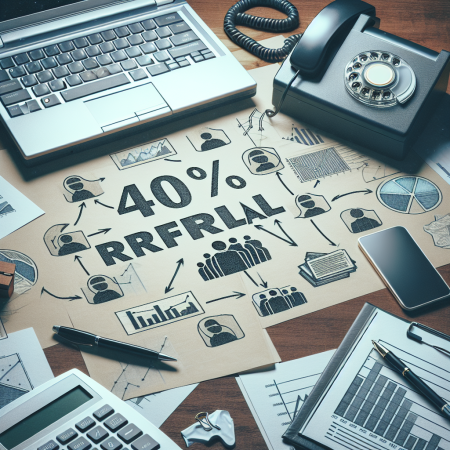The Referral System That Generates 40% of My New Business
Building True Connections
The Importance of Relational Networking
One of the biggest lessons I’ve learned is that building genuine connections is paramount. Relational networking means focusing on real relationships rather than just transactions. When people trust you, they’re not just going to refer you; they’re going to advocate for you. That’s where the gold is.
Engaging with your connections authentically can really set you apart. Sharing your personal stories and experiences allows others to see the real you. This isn’t about pushing a product; it’s about sharing a journey. I make it a point to remember little details about my contacts’ lives, which makes our conversations more meaningful.
Always be present when you interact—whether it’s at a networking event or through a phone call. Look people in the eye and truly listen. It’s a small thing that yields big results. People will notice the difference, and trust me, they will be more likely to send referrals your way.
Creating Value Before Asking for Referrals
Giving More than You Get
When it comes to referrals, I always say you have to lead with value. It’s essential to demonstrate your value before you even think about asking for referrals. In my experience, people are more inclined to help when they feel appreciated and recognized.
Today’s market is saturated. Therefore, I often provide free resources, like e-books or workshops, aimed at genuinely helping others. I want my network to see me as someone who is invested in their success. This builds goodwill, which in turn creates fertile ground for referrals.
Moreover, maintaining that value throughout the relationship is vital. Be the first person to offer help when someone reaches out, and don’t keep score. This generosity of spirit will come back to you in spades someday, and your network will subconsciously be on the lookout for ways to refer you.
Strategically Asking for Referrals
How and When to Ask
Timing is everything when it comes to asking for referrals. I’ve learned not to jump the gun. Instead, I look for those natural moments when my clients express satisfaction. A simple “I’m glad you’re happy with the service!” can lead to a seamless transition into a referral request.
Be straightforward about your goals, too. I’m not shy about telling my clients that referrals are essential for my business. Most appreciate the honesty. When you explain that their referrals will help you grow, they tend to feel a sense of pride in helping you succeed.
And remember: the best time to ask is immediacy. If a client is singing your praises, use that moment to ask for a referral while the positive sentiment is fresh in their mind. The enthusiasm will come through, and they’ll be more likely to refer you to their network.
Rewarding Your Referral Partners
Creating Incentives that Work
Recognition and reward can go a long way. I’ve found that rewarding those who refer me is crucial. It could be something as simple as a heartfelt thank-you note, or as elaborate as a referral program with incentives. Make them feel appreciated and valued!
Sometimes, I offer gift cards, discounts, or special deals for every referral that turns into a client. This not only incentivizes them to promote my business but also fosters loyalty, which is priceless. Most importantly, make sure the rewards align with their interests and preferences for the personal touch.
But remember, it’s not always about the tangible rewards. Sometimes, simply acknowledging their contribution publicly—like mentioning them in a newsletter or on social media—brings them joy and motivates them to keep the referrals coming.
Tracking and Following Up
Measurement is Key
A critical aspect of my referral system is tracking. I keep a close eye on where my business is coming from—this helps me understand what’s working and where I need to focus more effort. Use a CRM or even a simple spreadsheet to record who referred what and when.
Following up with both clients and referral partners is equally important. When referrals do come in, I always take the time to thank the person who referred them—this reinforces the behavior and reminds them why they’re connecting me with others.
It’s also smart to touch base with referred clients after a deal is closed to gather feedback. This way, I not only show appreciation for their business but can also streamline the process in the future. Listening to client feedback is invaluable for refining my approach.
Frequently Asked Questions
1. How can I start building connections for referrals?
Start by being genuinely interested in others. Attend networking events, engage in conversations, and follow up afterwards. Your goal should be to build relationships that are mutually beneficial.
2. What should I offer as value to my network?
Consider creating informative content such as blogs, webinars, or e-books that provide helpful insights related to your industry. Free consultations are also a fantastic way to demonstrate your expertise.
3. When is the right time to ask for referrals?
The best time to ask is shortly after the client expresses satisfaction with your service. Capture that moment of enthusiasm to request mentions in their networks.
4. Should I reward people who send referrals?
Absolutely! Rewards—whether they’re tangible or not—can motivate people to refer you more often. A simple thank-you note can be as impactful as a gift card.
5. How can I track my referrals effectively?
Use customer relationship management (CRM) software or a simple tracking sheet to monitor where referrals are coming from. Regular follow-ups also help maintain and strengthen those relationships.


